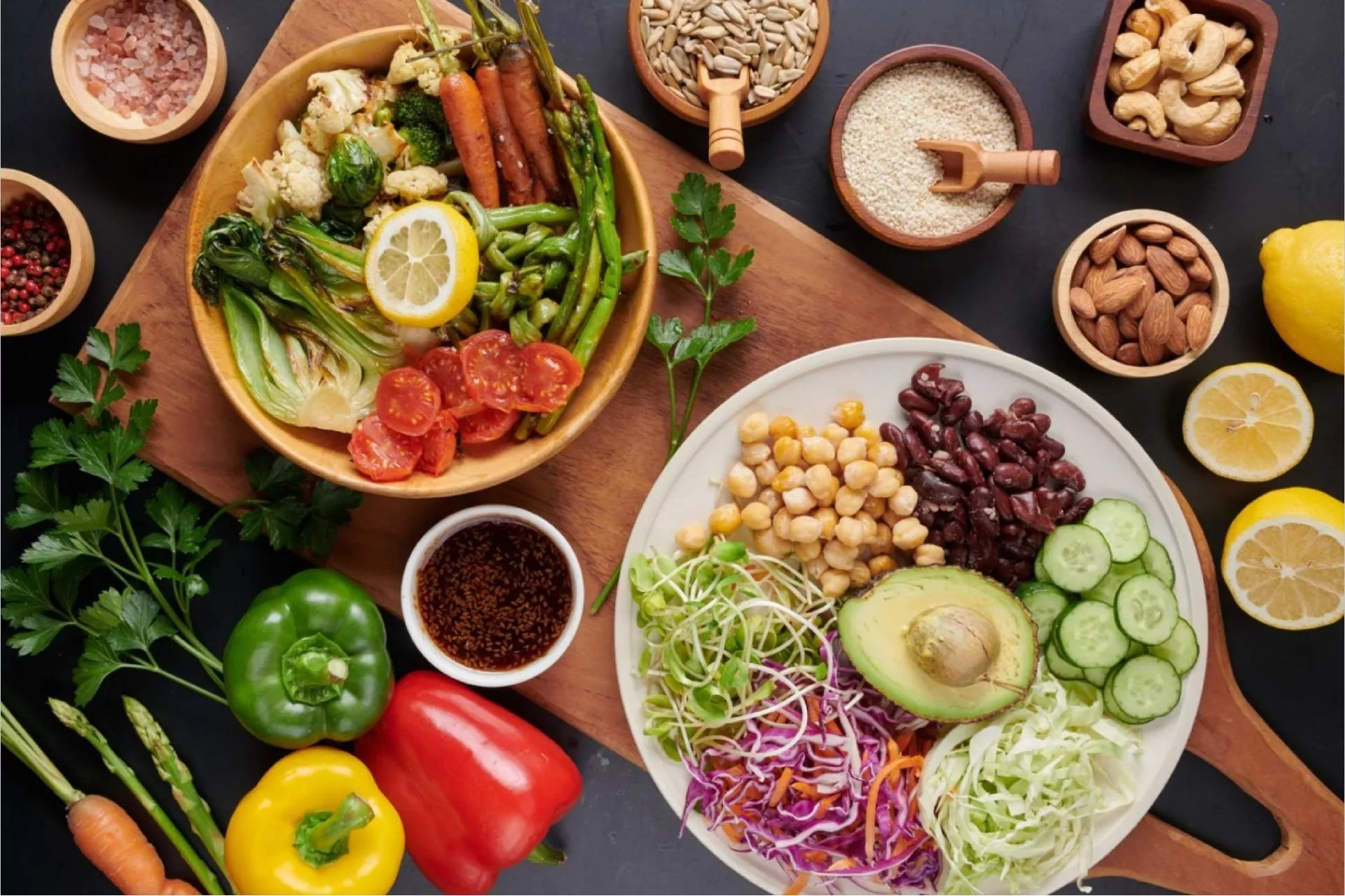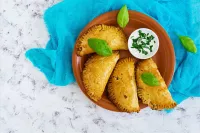Plan Carefully
It is always a good idea to plan your meals carefully in advance. Without giving it some forethought, you may have no idea what to make for breakfast, lunch or supper. Some people will do weekly meal plans at the start of each week and then go to the supermarket to ensure they have all the necessary ingredients. If you are an unconfident cook or a beginner, then this is an excellent thing to do as it gives you time to ensure that you have a balanced diet.
Increase Your Fruit and Vegetable Intake
It is thought that just 14% of US adults eat enough vegetables and 18% eat enough fruit. This means that almost all of us need to increase our intake of fruit and vegetables. They are essential to a healthy diet as they contain inflammation-fighting antioxidants, vitamins, minerals and fiber. It is recommended that an adult eats 2 cups of fruit a day and 2.5 to 3 cups of vegetables. This means that you should be putting them in your meal plan. For example, you could have a fruit smoothie in the morning, salads for lunch, and a dish with vegetables for dinner. Some people make noodles out of vegetables by spiralizing sweet potatoes or zucchinis. It is also possible to snack on things such as baby carrots, apple slices, dried fruits, and so on.
Opt for Whole Grains
It is always better to choose whole grains over refined grains, and while you may not always be able to, you should try to do so at least half of the time. Whole grains, such as brown rice and bulgur, still have their bran, which means they are rich in fiber, B vitamins, magnesium, zinc, and more. You should try to each things such as quinoa, whole wheat pasta, oats, farro, and barley.
Vary Your Protein
Meat is a great source of protein, but we tend to each too large portions. One serving of protein is 3 ounces cooked or 4 ounces raw, which is not very much. Therefore, try to eat smaller amounts of meat, fish and poultry and then fill your plate with vegetables and grains. You can also turn to other sources of protein. There are many vegetarian and vegan protein-rich foods that are excellent meat substitutes.
Look to Other Cuisines
It is well known that the Mediterranean diet is very healthy as are many traditional Japanese and Chinese foods. They are rich in vegetables and grains and contain no processed foods. You can look to these diets for inspiration. For instance, using spices and herbs instead of salt to add flavor to food.
Watch Your Portion Size
Even when eating the healthiest of foods, it is important to keep your portion size down. You don’t have to obsessively measure out every meal, in fact, that is probably unhealthy, but having an idea of what a healthy portion size is will help prevent you from over eating.
Eat Healthy Fats
Many people do not realize that fats can be healthy and in fact, there is research suggesting that fats are essential to a healthy diet. Fat is filling, so it will help you to eat less. Furthermore, it helps with the absorption of vitamins A, D, E and K. However, it is best to opt for unsaturated fats such as olive oil, avocados and nuts, over saturated fats such as butter.
Reduce Added Sugar and Salt
Nearly all of us eat too much sugar and salt, and over eating either of them can lead to conditions such as high blood pressure and heart disease. Ideally, women should have less than 6 teaspoons of sugar each day and men should have less than 9.
In regards to salt, we should eat no more than 2,300mg of sodium each day. This is why cooking at home is important. The more you cook, the better control you have over sodium levels. Cooking with fresh whole foods rather than processed foods will help you greatly reduce your salt intake.
Treat Yourself
It is important to enjoy the occasional treat. Just because you are trying to eat healthily, it doesn’t mean you can’t enjoy your food. Self-deprivation works for very few people, most of the time if something is forbidden then we want more of it. Don’t worry about indulging yourself with a cookie occasionally. However, try not to eat snacks just because they are available, it is important to moderate.
Think
Mindful eating takes getting used to. However, it is certainly worth getting into the habit of doing. Taking the time to make conscious food decisions rather than grabbing something while on the run will make a huge difference. At the same time, it will ensure that you are eating foods you enjoy, which is vital if you are to sustain your healthy eating habits.

 Foods That Will Never Go Off
Foods That Will Never Go Off Easy Latin American Recipes to Try at Home
Easy Latin American Recipes to Try at Home



